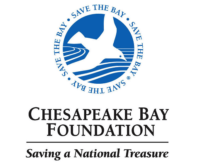Roundup: Conservation Community on the Governor’s Budget Proposal
Last year, the General Assembly agreed on a biennial budget that received record funding for bay cleanup, parks, trails, and land conservation grants. On Thursday, Dec 15th, Governor Youngkin introduced his proposed amendments to the biennial budget, which will be considered during the upcoming legislative session. The Governor’s amendments maintained, and in some cases increased, funding for many programs protecting our natural resources. However, some key programs saw cuts, and missed opportunities for critical investments remain. See VCN’s take on wins, missed opportunities, and our partners’ statements below.
If you would like to weigh in on these budget amendments, see below for details on the budget hearings Thursday, January 5th.
More funding to meet the Chesapeake Bay’s 2025 cleanup deadline

Yorktown fishing pier at sunrise on a summer morning in Yorktown, Virginia. Photo by Lori A Cash
The biennial budget allocates a historic $1 billion in funding to restore the Chesapeake Bay, helping Virginia meet the 2025 deadline to reduce pollution entering our creeks, streams, and ultimately the Bay. Governor Youngkin added additional funding to protect our waters. These amendments included an additional:
- $237 million to Virginia’s wastewater treatment plants for investments that reduce nitrogen and phosphorus pollution in waterways. (biennium total of $306 million)
- $137 million for Virginia’s agricultural cost-share and related programs, which help farmers to adopt important conservation practices. (Biennium total of $380 million)
- $100 million to update the City of Richmond’s combined sewer system, which discharges pollution to the James River in times of high precipitation. (Biennium total of $200 million)
Response from Our Partners:
Additional Flood Resilience Funding – but not for the best fund
Understanding the immense need for flood resiliency investments, the Governor included an amendment to invest in flood resilience. The Governor allocated:
- $200 million (contingent upon surplus revenues) for the Resilient Virginia Revolving Loan Fund, which will provide loans or grants to finance resilience projects after policy guidance is created by DCR
- $1 million over the biennium to coordinate and strategize flood resilience policy in the state government and identify federal funding opportunities
The additional funding from the Governor for the Loan Fund is important but should not be a replacement for the robust, long-term funding from the Community Flood Preparedness Fund. The Community Flood Preparedness Fund provides communities with flood resilience infrastructure and has already invested over $235 million in flood resilience across the Commonwealth thanks to Virginia’s participation in the Regional Greenhouse Gas Initiative (RGGI). This critical funding source is only the beginning of our flood resiliency efforts, with many millions of dollars more needed.
The Loan Fund does not prioritize nature-based approaches as outlined in the CFPF nor the requirement to dedicate 25% of funding to limited-resource communities. The continued prioritization and involvement of low-income, rural, and tribal communities in flood resilience planning and adaptation, as outlined in the Community Flood Preparedness Fund, is essential.
Ultimately, the Governor and the General Assembly must maintain our participation in the Regional Greenhouse Gas Initiative and guarantee 45% of revenues generated from RGGI continue to be allocated to the CFPF, which is the best tool the Commonwealth has to protect communities from recurrent flooding.
Response from Our Partners:
Land Conservation Funding Maintained (But Still Underfunded)

Lexington, Virginia. Photo by E.C. Meyers
The Governor maintained land conservation funding – including Virginia’s historic investment in outdoor recreation and trails. The Governor also increased investments for the Virginia Black, Indigenous, and People of Color Historic Preservation Fund, bumping the new program’s funding from $5 million to VCN’s full budget ask of $10 million.
Other conservation programs remain chronically underfunded, and more investments are needed to protect the Commonwealth’s landscapes. While maintaining funding levels is important, the Governor missed opportunities to fully fund Virginia’s key land conservation programs, including:
- the Virginia Land Conservation Foundation
- the Farmland Preservation Program and/or the Office of Farmland Preservation
- the Get Outdoors Program
- mussel population restoration projects
- the Wildlife Corridor Action Plan
- the Virginia Department of Forestry’s Trees for Clean Water Program
Response from Our Partners:
Energy Funds Should Prioritize Proven Renewable Energy
The Governor allocated $10 million to the Virginia Power Innovation Fund, which will invest in the study of small modular nuclear reactors, carbon capture, and use of hydrogen. There are still many questions about these unproven technologies and it is critical that any investments have guardrails in place to ensure they prioritize getting the Commonwealth to a net zero economy by 2050.
The Governor’s budget also includes a series of missed opportunities to invest in policies that would help save consumers money and reduce carbon emissions within the next few years. The budget proposes taking away $11.4 million dollars from Virginia’s energy efficiency program for low-income housing and misses the opportunity to invest the Brownfield and Coal Mine Renewable Energy Grant Fund which supports the development of renewable energy resources in Southwest Virginia. The budget also failed to fund the Electric Vehicles Rebate, a proven policy to reduce carbon pollution from the transportation sector.
Next Steps
Now, the Governor’s budget amendments will head to the General Assembly for approval. VCN and our network partners will continue to advocate for strong conservation funding through the 2022 General Assembly session and beyond, making sure we keep the necessary funding in the Budget Bill while continuing to address any gaps that have been left.
Last Chance to Advocate for Conservation Funding Before Session
Virtual regional public hearings regarding the budget will be held on January 5, 2023, beginning at 10:00 AM. Registration is first come, first served and will occur on January 4th ONLY. Individuals wishing to be heard should plan to register as soon as the electronic registration system begins accepting registrations on January 4th.
If you are unable to submit comments virtually, then you may also submit written comments (maximum limit of 3500 characters or 425 words using the text box feature OR you may attach a .PDF document that is no larger than 4 MB).






